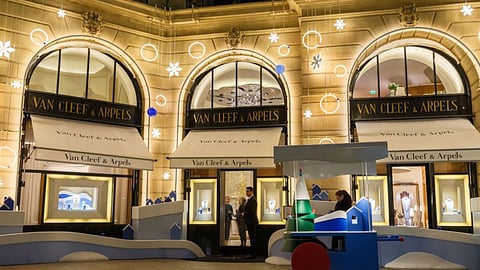Wolf in cashmere: LVMH’s Arnault teases potential Richemont acquisition – Andrea Felsted
In a surprising twist, Bernard Arnault, the "wolf in cashmere" CEO of LVMH, raised eyebrows with praise for Van Cleef owner Cie Financiere Richemont. Arnault's cryptic remarks on supporting Richemont's independence fuel speculations of a potential acquisition. A merger with LVMH could create a jewellery powerhouse, but Richemont's chairman, Johann Rupert, staunchly opposes a sale. With both luxury giants led by septuagenarians, questions of succession arise, and Arnault's overture hints at a possible alliance, challenging the delicate dynamics of the luxury industry.
Sign up for your early morning brew of the BizNews Insider to keep you up to speed with the content that matters. The newsletter will land in your inbox at 5:30am weekdays. Register here.
By Andrea Felsted
The wolf is licking its lips. The prey is not wearing a red hooded cape, but Van Cleef & Arpels jewelry.
___STEADY_PAYWALL___

